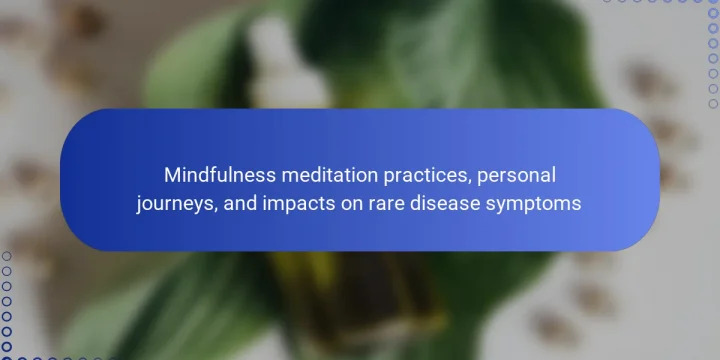
Yoga therapy offers a promising approach to enhancing well-being for individuals with rare diseases. This article explores key poses, their benefits, and the holistic effects of yoga therapy. It highlights how tailored practices can improve flexibility, reduce stress, and foster emotional resilience. Additionally, it addresses cultural perceptions and challenges in integrating yoga therapy into treatment plans. What are the core principles of Yoga Therapy for rare diseases? Yoga therapy for rare diseases focuses on individualized practices to enhance well-being. Core principles include breath control, mindfulness, and specific poses tailored to the patient's needs. These practices promote physical, emotional, and mental balance, facilitating healing and improving quality of life. Key poses often include gentle stretches and restorative postures, enhancing flexibility and reducing pain. Benefits encompass stress reduction, improved mobility, and enhanced…








